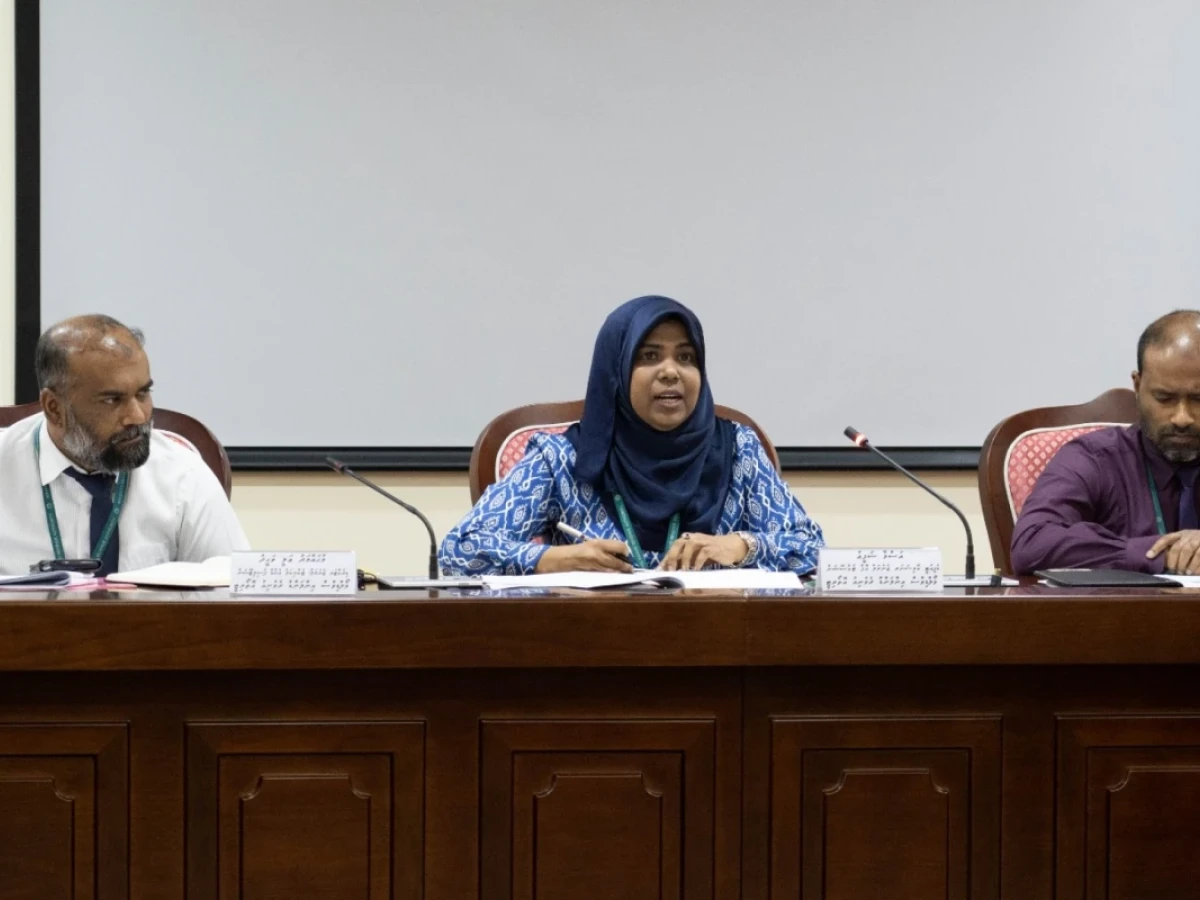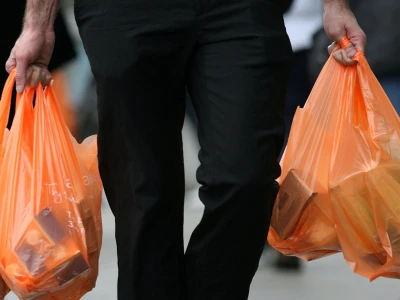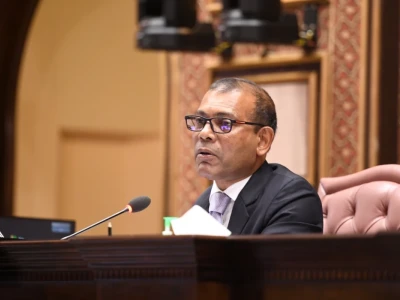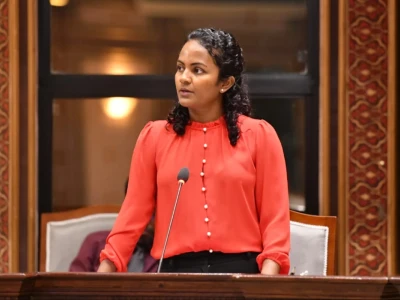
Double fee on bags can only be resolved via tax system, MIRA says
The committee members asked MIRA members why they did not take into account tax laws while reading the Waste Management Act.
By
Mariyam Umna Ismail
The issue of multi-fold hike in the fee on plastic bags under the new Waste Management Act can be resolved only if the fee is made part of the tax system, state tax agency MIRA said on Wednesday.
The Waste Management Bill, which was passed by parliament in November last year, became a law and the government started charging a fee of MVR 2 per plastic bag from April 18. With this change, the prices of bags sold at wholesale shops have gone up manifold, both while buying bags and shopping.
-
To resolve the issue, the government has proposed to amend the law to bring down the price of bag bundles
-
However, Hoarafushi MP Ahmed Saleem, who heads the environment committee that examined the waste management bill, opposed the amendment
-
According to him, the high tax is not levied because there is something wrong with the law; it is because of the interpretation of the law by MIRA, which was entrusted with the task of implementing the fee
Senior officials of MIRA were summoned for a meeting of the environment committee held on Wednesday. Attendees from MIRA:
-
Deputy Commissioner General of Taxation Asma Shafiu
-
Assistant Commissioner General, Revenue Services Ahmed Shareef
-
Director General, Technical and Facilitation Mohamed Ali Waheed
Speaking to the committee on the issue before allowing MIRA members to speak, Saleem said:
-
While the regulations framed by MIRA are implementing the collection of fees from bags, neither the purpose of parliament passing the law nor the intention adopted by the government in this regard has been achieved
-
There are incentives in charging fees and MVR 2 for each business activity. MIRA was given the power to decide how to proceed with the collection.
-
It has to be read along with the General Law on Taxation and the GST Act; it is written so it cannot be assumed that the GST Act does not fit the plastic bag fee.
"Then again, it did not happen the way we had hoped, not the intent, not in the spirit of the act, nor with the instructions given in the Act," Saleem said.
Responding to Saleem's comments, Ali Waheed said that every business activity costs MVR 2. It has to be collected and not as per the regulations framed by MIRA. That's how the law defines it, he said.
Section 32 of the Waste Management Act states that for every plastic bag sold or supplied to the customer at point of sale by a business activity, the fee for the plastic bag from that business activity shall be MVR 2 from the customer.
"In the article, it is said that every plastic bag provided or sold to each customer by business activities will cost MVR 2 at that stage. We have to take it. That's how we interpret the law. Under no circumstances is it done within the regulations," Waheed said.
Waheed said that as the law is in place, he does not believe that when a fee is levied from a bag, it can be determined that it cannot be taxed on the basis of whether it was taxed in the past. He said the problem arose when such a "set-off system" was introduced after bag bundles containing 50 or more bags were exempted from the tax.
"Initially, when the bill came, we also found that there was a mechanism in place at that time when 50 or more bags were sold. I don't know why businesses are trying to cover the cost by taking that appeal and doing a similar set-off system," Waheed said.
He said that when it was brought to MIRA's notice that the removal of the appeal would lead to a major change in the price of the bags, he took up the matter with the authorities concerned.
"... At each stage, business activities will recover the cost at the time of the sale, recover the fees they paid. It'll be added, so the customer will get MVR 6 or maybe for MVR. 8. We told them that it would happen practically," he said, adding that MIRA was not allowed to give comments when the bill was examined.
The committee members asked MIRA members why they did not take into account tax laws while reading the Waste Management Act, even though it was mentioned that tax laws should be taken into account while framing the regulations.
As the law stands now:
-
Plastic bags charges will not be included while calculating GST under the Goods and Services Tax Act
-
The clause on levy of fees from bags (Section VIII) shall be called with the Tax Administration Act and the Goods and Services Tax Act, and as long as every word or expression used in the said section is not specified otherwise, it should be interpreted in such manner as the same term or expression is interpreted in those acts
Replying to questions, Asma said that though there is an input tax regime in the GST Act, she does not believe that it can be used for bag taxing.
"We can't mean it can be applied to this fee. If you apply for this fee, it will be in this act, the input tax will be referred to GST in the GST Act. Therefore, MIRA cannot believe that this fee will bring down the input tax mechanism that the act says."
Waheed also said that while there is an input tax regime in the GST Act, it cannot be followed when all the regulations in it are not clearly defined in the Waste Management Act.
"So, there is no mechanism in place to set off with respect to plastic fees. Initially, when the bill was taken, they used a mechanism to set off... those that framed the bill brought that 50-bag structure. This is happening because no further mechanism has been put in place to remove it," Waheed reiterated.




